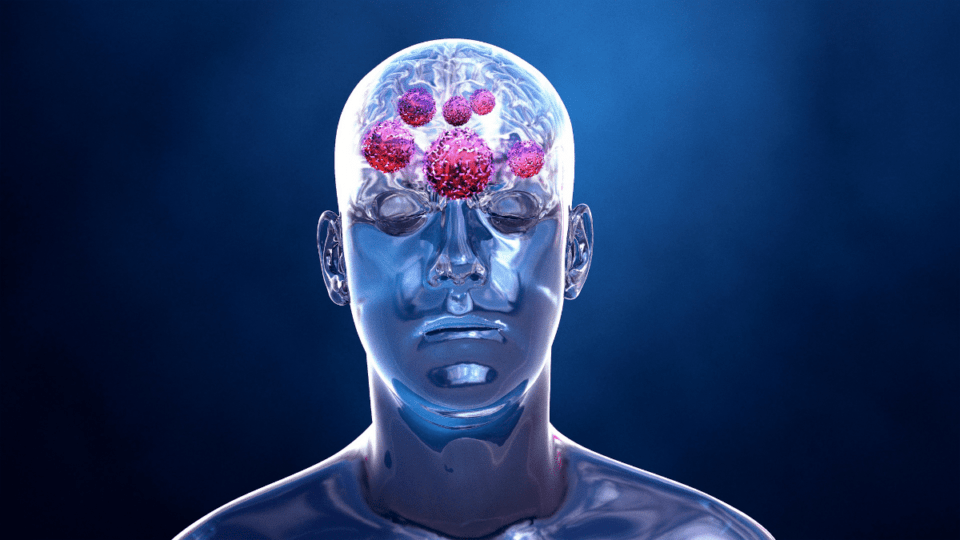Addiction has plagued many households. Most people know of or have lived with an addict or alcoholic.
In addition to the trauma someone can suffer from living with an addict, there is also long-term damage that can be caused to the addict’s brain.
A wide variety of neurological effects can be caused by substance abuse. However, many of these changes are the direct result of intoxication. They cease once the substance is gone.
However, chronic or prolonged heavy use of certain drugs can lead to neurological problems that can be long-lasting and detrimental.
In this article, we will discuss how alcohol and drugs affect mental health.
What is addiction?
According to ASAM, addiction is a treatable chronic medical condition that involves complex interactions between brain circuits and genetics. It also affects the individual’s daily life experiences. Addicts use drugs or engage in compulsive behaviors, on a regular basis, which can lead to addiction.
Treatment and prevention strategies for addiction are historically as effective as for other chronic diseases.
Read: Learn how to analyze people with dark psychology
What percentage of the population suffers from addiction?
The statistics surrounding addiction are staggering. Addiction can lead to the end of relationships, careers, and marriages. It can also threaten the safety and basic health.
According to The Addiction Center,
- Around 20% of Americans with depression or anxiety also suffer from a substance abuse disorder.
- Over 90% of those with an addiction began using drugs or alcohol before they were 18.
- Americans between the ages 18 and 25 are more likely to abuse addictive drugs.
- Nearly 21 million Americans suffer from at least one addiction. Yet, only 10% receive treatment.
- Since 1990, drug overdose deaths have tripled.
- The US economy is losing over $600 billion each year to drug and alcohol addiction.
How do drugs and alcohol affect our brains?
Our thoughts, speech, and memory are all controlled by the brain. It also controls the movement of our limbs and many other organs in our bodies. The brain’s neurotransmitters are affected by drugs and alcohol.
According to Mohamed Zeyara, drugs and alcohol release dopamine in excess, creating temporary spikes in pleasure and euphoria. The brain adapts over time to different drug or alcohol intake, which makes the desired substance or activity less enjoyable.
This is commonly referred to as an increase in tolerance levels.
Dr. Zeyara explains that dopamine plays a vital role in many functions such as motivation, learning, movement, memory, and other areas that affect everyday life.
When drugs or alcohol are consumed, dopamine temporarily floods your brain. The addict will get addicted to this euphoria and will have difficulty reaching these levels naturally. The addict must continue to use the addictive substance for a long time in order to get the same dopamine rush. Dr. Zeyara stated.
Certain drugs will ultimately cause physical dependency. Making it more difficult, and often dangerous to stop using the substance.
What is the connection between mental health and addiction?
People suffering from a mental illness have twice the likelihood of having a substance abuse disorder than the general population. A minimum of 20% of those with mental illnesses have a co-occurring substance abuse disorder.
Individuals may use alcohol or drugs to treat their mental health issues. This is also known as self-medicating. Self-medicating is an act that is common in the general population. However, studies have shown that self-medicating among those with anxiety disorders or mental illnesses is significantly more prevalent.
An antisocial personality disorder is the personality disorder most at risk for addiction. However, people with this condition are less likely to seek treatment and often do not finish it.
The dangers of self-medicating include:
- Incorrect diagnosis or dosage
- Adverse reactions to substances
- Prolonging treatment
- Masking severe diseases
Read: Dimitri Krainc: Interaction of Mitochondria and Lysosomes Key in Parkinson’s Disease
Frequently Asked Questions
Which mental disorder is most commonly comorbid with alcoholism?
The National Institutes of Health reports that three of the most common mental disorders that are associated with alcoholism include major depression and bipolar disorder.
Anxiety disorder is also a top concern. Post-traumatic stress disorder, dependent personality disorder, and conduct disorder are less commonly co-diagnosed alongside alcoholism.
Which drugs can cause mental illness?
Stimulant drugs may make you feel anxious, depressed, and paranoid.
For example:
- Stimulants can cause mental health issues to recur or trigger schizophrenia and psychosis.
- Memory problems can be experienced by Ecstasy users.
- Mental health issues can be made worse by hallucinogenic drugs like magic mushrooms (Psilocybin mushrooms).
Are the effects of alcoholism reversible?
Brain damage can last a lifetime after brain cells cease to exist. Some brain changes caused by alcoholics are simply due to brain cells changing in size. These cells can be restored to their normal size once an alcoholic stops drinking.
This shows that some alcohol-related brain damage can be reversed.
How do you know if your brain is damaged by alcohol?
Alcohol has a profound effect on the brain. These impairments can be detected after just one to two drinks, and are quickly resolved when the drinking stops.
- slurred speech
- slowed reaction times
- impaired memory
- difficulty walking
- blurred vision
Long-term alcohol abuse can cause permanent damage to memory, brain functions, and vital organs.
Conclusion
The brain is complex and can adapt to different stressors and situations. This concept is known as neuroplasticity.
The brain and body were created to be resilient. Some forms of treatment may be able to enhance the neuroplasticity process and increase neurological recovery. One study found that more than 85% are mild TBIs and that most people can recover with medical treatment.
A substance abuse disorder can be prevented or treated by seeking treatment. This will help you to regain your physical and mental health.

Mohamed Zeyara is a medical student and humanitarian who has helped raise millions of dollars to support underserved communities worldwide.
